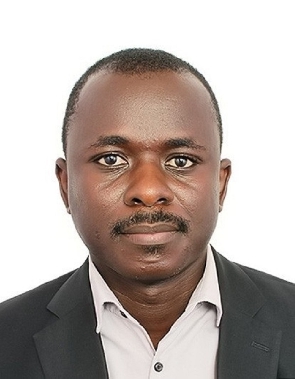Regional News of Thursday, 19 January 2023
Source: Sefa Sedofia, Contributor
The rapid rise of ICT in Ghana has attracted global interest - Dr. Michael Owusu
The Chief Operation Officer at Keed Ghana Ltd, Dr. Michael Owusu, says Ghana has experienced a rapid rise in the use of information and communication technology (ICT) in recent years, attracting global interest in the country's digital developments.
He said one of the key factors in this growth has been the government's efforts to promote and invest in ICT infrastructure stating that the government has implemented various initiatives to increase internet access and adoption, including establishing internet kiosks and rolling out fiber optic cables to connect rural areas. As a result, Ghana's internet penetration rate has significantly increased, reaching over 50% in 2021, according to Freedom House.
"This shows how the internet is progressing by leaps and bounds in the country". He added.
The IT expert further stated that one of the key drivers of the growth of ICT in the country has been the expansion of internet access. He said According to data from the World Bank, the percentage of the population with internet access in Ghana increased from just 2% in 2005 to over 69% in 2021 and this rapid boost has been fueled by several factors, including the expansion of mobile networks, the proliferation of smartphones, and the introduction of government initiatives aimed at increasing access to the internet.
"The increase in internet access has had a transformative effect on various life sectors in Ghana, including education, healthcare, and agriculture. When we talk about the importance of ICT in education, e-learning platforms have expanded, providing more flexible and accessible education options for students.
In healthcare, the use of telemedicine has improved access to medical services in remote and underserved areas. And in agriculture, using digital technologies such as precision farming and supply chain management has increased efficiency and profitability," he added.
Speaking about the role of the private sector, he stated that in addition to the government's efforts, the private sector has also played a significant role in developing ICT in Ghana because the country has seen the emergence of several local tech start-ups, which have received funding from global investors. These start-ups focus on various areas, including e-commerce, financial technology, and renewable energy.
He further said the rapid rise of ICT in Ghana has attracted the attention of global companies and organizations who are seeking to take advantage of the country's growing digital market. For example, major tech firms such as Google and Microsoft have established a presence in Ghana, while international organizations such as the World Bank have provided funding and technical assistance for digital projects in the country.
Dr. Owusu acknowledged the fact that the increasing use of ICT in Ghana has also had social and economic impacts. He said the expansion of internet access has enabled more people to participate in the digital economy and has contributed to job creation and economic growth.
However, as with any rapid technological change, challenges must be addressed. One such challenge is the digital divide, which he refers to as unequal internet access and related resource distribution.
He advised that the government and the private sector should continue working to ensure that all segments of society have equal access to the benefits of ICT and this will be important for the sustainable development of Ghana's digital economy.
This is because the country's success in leveraging digital technologies for development presents an opportunity for other countries in the region and beyond to learn from and adopt similar approaches.











